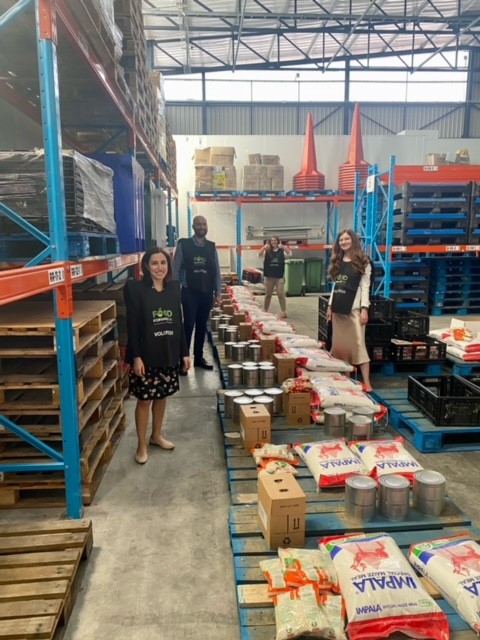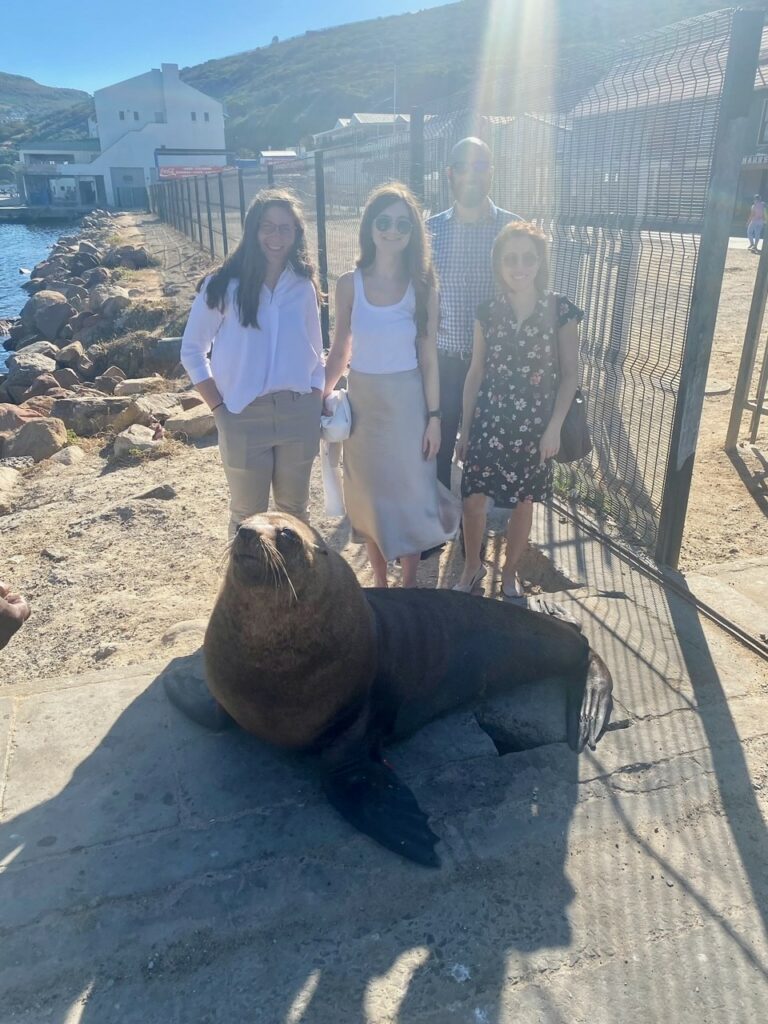By Mady Womack, FLPC Clinic Student, Fall 2023
I was initially drawn to the Clinic because I was involved with establishing a food pantry on my undergraduate campus. Agriculture is also a crucial part of the economy in my home state of Kansas, so I wanted to learn more about food policy. Though I came to the clinic to learn more about my home, I left with a truly global perspective on food law and policy issues that touch us all.
During my 2L fall and winter terms, I worked with the Clinic on the Atlas Project providing technical assistance to our partners in Mexico and South Africa. I had the amazing opportunity to visit both Mexico and South Africa to meet with our partners on the ground and learn more about the sociopolitical context specific to food law and policy in each.
In Mexico, we were able to meet with our food banking partner, Banco Alimentario de Mexico (“BAMX”) and a number of other organizations. I really appreciated being able to learn about the differences between the law on paper, that we had researched at length, and what implementation looked like in practice. We were also able to visit some great sites around the city, that Hudson wonderfully described in his post.
I stayed on with the Clinic to join the team on a trip to South Africa for the January term. I was admittedly surprised to see how the same legal issues I had studied in Mexico and the United States were present in South Africa as well.
We were able to visit our partners FoodForward South Africa and the Consumer Goods Council of South Africa at their offices across the country. We had insightful discussions about how to move food safety and liability protection policies forward. In both countries we met with food business associations who are looking to change policy to facilitate food donations from their businesses to communities experiencing hunger.

I was heartened that in food law, unlike perhaps other areas of policy, there are issues where the nonprofit and private sectors are aligned in their advocacy. As someone who firmly believes we need more leaders with experience in both sectors, this was inspiring to see. We also had the opportunity to visit with farmers and retailers directly, learning more about their operations and challenges. We even got to sample some fruit straight off the vine!
Our partners at FoodForward were wonderful hosts. Andy Du Plessis, the Managing Director of FoodForward, drove us all over Cape Town, showing us stunning natural vistas, but also the townships where people live in informal residences constructed from corrugated metal. It reminded me of our own struggles with inequality and the legacy of state sponsored racism in the United States.

In Johannesburg, we were able to visit important historical museums, such as the Apartheid Museum and Nelson and Winnie Mandela’s house on Vilakazi Street in Soweto. Our visit to Constitution Hill, particularly stood out to me. Constitution Hill sits on the site of the old Fort Hare Prison where many activists such as Nelson and Winnie Mandela, Mahatma Gandhi, and Fatima Meer were imprisoned as they fought for equality. Today this site houses South Africa’s Constitutional Court, a museum, and gender equality nonprofit organizations. Together they are reclaiming the space in their commitment to freedom and a better future. These visits left me with both a deep admiration for those who fought to dismantle apartheid and hope that we can continue to overcome oppression in all its forms.
I thoroughly appreciated my time with the Food Law and Policy Clinic. More than anything though, I genuinely enjoyed working with everyone at the Clinic and with our partners.

Health Law & Policy, Commentary
Cuts to the Federal Workforce and Medicaid: What’s Happening and What Can Advocates Do? – Health Care in Motion
March 12, 2025